Album review: Dynamism and pop punch lacking on Dua Lipa’s Radical Optimism
Despite the promise of Radical Optimism’s early singles, the new album from this chart-topping British-Albanian artist falls away quickly, and her powerhouse vocals sound oddly flat and lifeless.

Album reviews for week of May 24 2024:
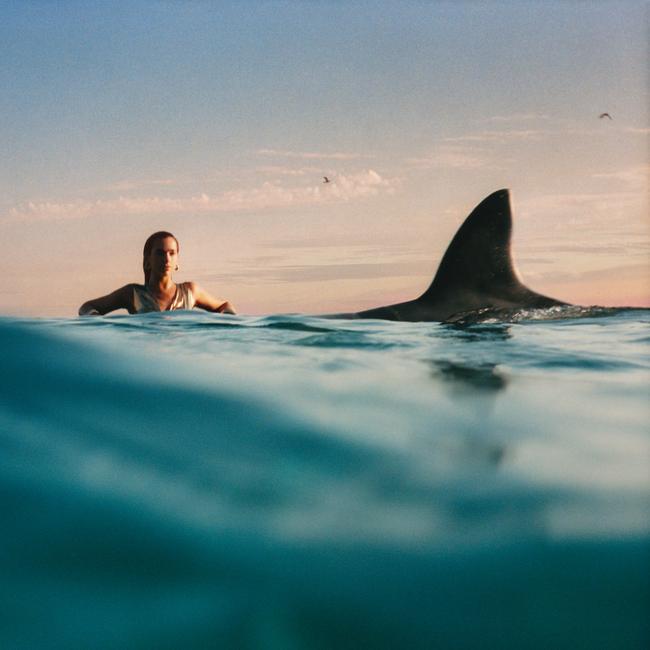
POP
Radical Optimism
Dua Lipa
Warner Music
In July 2016, I wandered up King Street in Sydney’s inner west to a venue called the Newtown Social Club (rest in peace). I’d ventured out in the cold to see a young British-Albanian singer called Dua Lipa who had started to generate some buzz following bubbly singles such as Be the One and Hotter Than Hell. About 50 curious industry hangers-on populated the room as the singer amiably engaged the crowd through the short set. It’s quite alien to picture the pop superstar in that dingy room now, having spent most of the past six or so years on a steep upward trajectory that began in earnest with the colossal 2017 single New Rules. Lipa’s self-titled debut album was a strong outing, but the bigger moment came with her globe-conquering second record Future Nostalgia. Released right as Covid-19 pulled the world over a cliff, it was a relentlessly energetic disco-house record that featured hit after chart-topping hit. Muscular tracks such as Physical and Levitating were standouts, the latter setting a fistful of Billboard chart records. Radical Optimism arrives as the highly anticipated follow-up. Early singles such as Houdini and Training Season indicated that the singer-songwriter, now 28, was keeping to much the same formula as her previous record, albeit with slightly sanded-down production.
Lipa assembled an all-star cast to produce the record, including Kevin Parker (aka Australian artist Tame Impala), Tobias Jesso Jr (Adele), Danny L Harle (Caroline Polachek) and New Rules co-writer Caroline Ailin. These initial singles seemed to be at odds with what Lipa was saying about the album, strongly asserting that it was influenced by Britpop, Primal Scream, and would be “a psychedelic pop-infused tribute to UK rave culture”. Radical Optimism was intended to be – and indeed, the first track is titled as such – the End of an Era. Putting it bluntly, those influences are nowhere to be found in Radical Optimism, and it isn’t a huge shift in direction or the end of Lipa’s past era. The album lacks Future Nostalgia’s dynamism and punch and, disappointingly, there’s an absence – outside of the two previously mentioned singles – of any hooky toplines. There are several fun moments, including the flourishes of ABBA on the opener and Training Season. Illusion is a highly satisfying nod to Eurodance, and Falling Forever sounds like something that could have featured on the back end of Lady Gaga’s Born This Way (in a good way). But the album falls away quickly, and Lipa’s powerhouse vocals sound oddly flat and – at times – lifeless, absent-minded. Lacking personality, Radical Optimism commits a cardinal pop sin: being forgettable.
Jules LeFevre

FUNK/SOUL
A La Sala
Khruangbin
Dead Oceans
Khruangbin made its tricky-to-pronounce name with ghostly funk instrumentals absorbing subtle cues from genres located all over the world. That made 2020’s Mordechai quite a surprise, as the Texas trio added more pronounced vocals and lyrics for lasting emotional resonance. This fourth studio album (Spanish for “To the Room”) takes a step back from that breakthrough element, with bassist Laura Lee Ochoa keeping her bilingual singing largely couched in the backdrop. Her interplay with drummer Donald Johnson Jr. and guitarist Mark Speer remains gorgeous, but all those reverbed surf twinges and vintage drum breaks begin to feel like a mere holding pattern. These songs are serenely cool in the moment, yet the overall album evokes a fleeting rehearsal reel. That’s not due only to the diminished role of vocals, but a nagging sense of repetition. While the ambient interlude Farolim de Felgueiras and the lullaby waltz Les Petits Gris are the least ‘Khruangbin moments’, in that they eschew the band’s signature motifs entirely, each is more intriguing for striking off in a new direction.
Doug Wallen
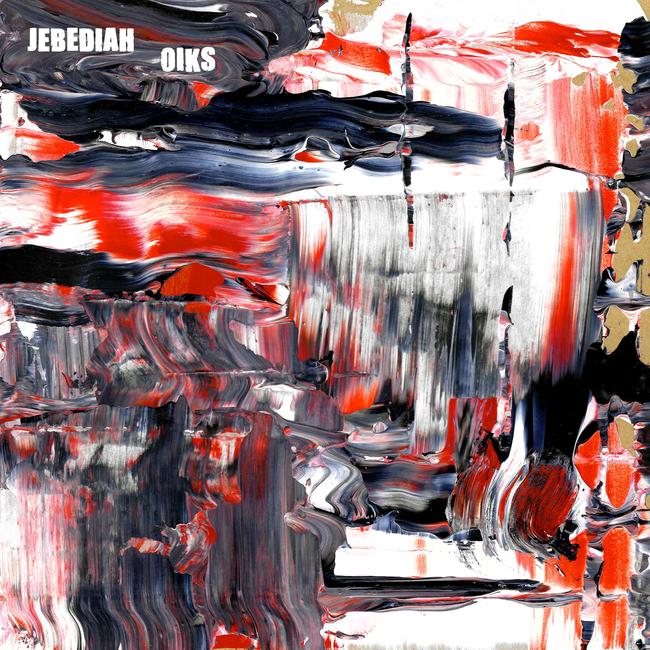
INDIE ROCK
Oiks
Jebediah
Cooking Vinyl
The one instruction for curious older fans giving Oiks a spin is this: give it time to grow on you. For any Gen Xers hoping for a return to the days of Leaving Home or Harpoon, this won’t deliver straight away (maybe throw on The Slip first if this is you). However, such an approach would defeat the point. In the 13 years since its last record – and the 27 years since its debut – Jebediah has refined and crafted its approach to Australiana alt-rock, and now more than ever, it’s threading the needle of instant-gratification garage rock and refined song arrangements, such as highlight Dead For You, and the slower but rousing pub sing-a-longs Motivation and Okay, You Win. There’s even room for some dream-pop experimentation on Rubberman, which sounds like frontman Kevin Mitchell has been taking cues from French pop duo Air’s back catalogue. The fact is Jebediah, like many other 90s-era bands, has aged gracefully. But whereas others tend to turn down the guitars, this quartet has instead allowed new sounds to creep in, resulting in a release that was well worth the wait.
Alasdair Belling
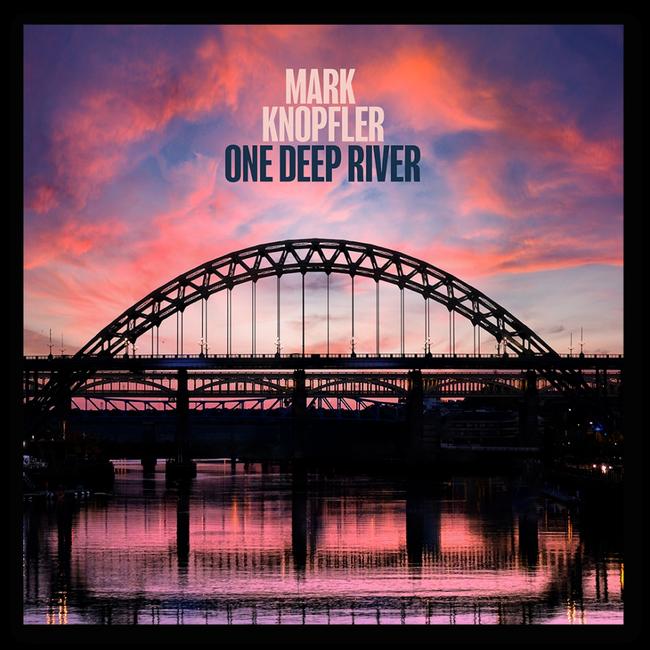
ROOTS
One Deep River
Mark Knopfler
British Grove/EMI
Though the title of Mark Knopfler’s 10th solo album refers to the River Tyne that flows through the master guitarist’s northern English home city of Newcastle, its songs range far and wide in terms of their subject matter. A few are set in retro America, specifically Tunnel 13, which revisits an infamous failed 1920s train robbery in the US Pacific Northwest. It’s typical of Knopfler’s journalistic approach to songwriting — before forming Dire Straits in 1977, he was a junior reporter on the Yorkshire Evening Post — and another standout track, Black Tie Jobs, recounts every rookie journo’s worst nightmare: the “death knock”. Asking the recently bereaved for a photograph, offering a handkerchief, it’s all there in Knopfler’s photorealistic storyteller’s account. Sonically, you know what you’re getting with one of his solo records: almost spoken-word narration in place of actual singing, deftly finger-picked guitars as punctuation, along with the cinematic sweep of Knopfler’s best soundtrack work. Additional audio colour swatches are provided by Greg Leisz (pedal steel), John McCusker (fiddle) and longtime sideman Guy Fletcher (keys/co-production).
Phil Stafford

DRUM & BASS
Silence is Loud
Nia Archives
HIJINXX/Island
For someone who was only alive for roughly three months of the 1990s, Nia Archives has been instrumental in the revival of that decade’s affinity for dance subgenres like jungle and drum-and-bass. The Yorkshire-born DJ, producer and singer has spent her 20s on a quick ascent within the electronic music scene – simultaneously indebted to its past while also carving her niche into its future. Her debut album, Silence is Loud, effectively serves as a story-so-far of sorts: it includes older cuts like her 2021 Columbo-sampling breakthrough Forbidden Feelingz and blissed-out 2022 single So Tell Me, rubbing shoulders with fresh tracks like the anxiety-riddled Crowded Roomz and standout banger F.A.M.I.L.Y. Archives’s pattern becomes apparent fairly quickly: she mixes the ease of her neo-soul vocal croon and a jazzy sample or two with bustling breakbeats and buzzing basslines. It’s an effective contrast, although it admittedly wears thinner over an LP format as opposed to her previous EPs. With further exploration and heightened dynamics, Archives could well deliver a truly game-changing album in the coming years.
David James Young
Album reviews for week of May 17 2024:
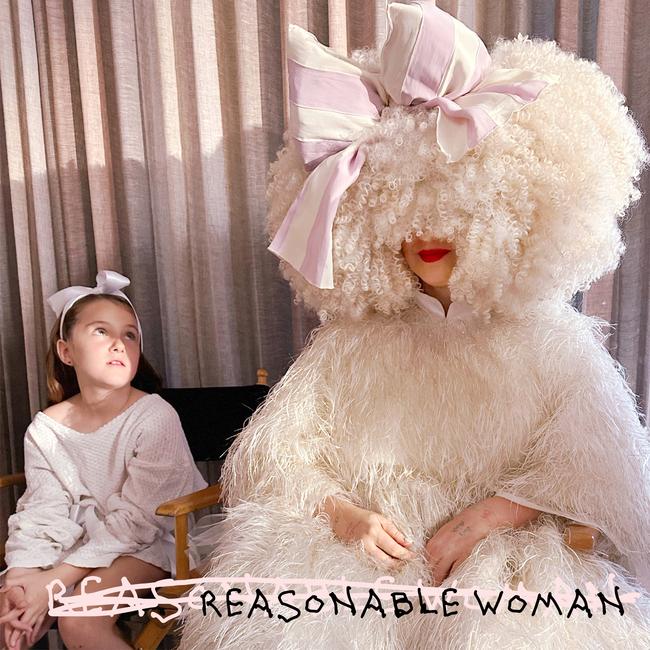
POP
Reasonable Woman
Sia
Warner Music
Sia Furler is capable of pop genius; we know this from the three-plus decades the Adelaide-born songwriter has spent delivering consistently powerful songwriting, both with her music and for others, such as Rihanna, Beyoncé and Carly Rae Jepsen. She’s written emotionally piercing ballads such as 2006’s Breathe Me; defiant chart-topping anthems such as Elastic Heart, and lent her chops to pristine EDM cuts such as David Guetta’s Titanium. In her early releases, she was a weirdo underdog with a penchant for theatrics, writing zesty, challenging and curious songs. Then she was a superstar when her radio-ready 2014 breakthrough, 1000 Forms of Fear, and its centrepiece, Chandelier, put forward a sound that would define the 2010s. Now 48, the pop titan has issued her 10th album, Reasonable Woman — and somewhere along the way, that same “Sia sound” has lost its charm.
Here, she doubles down on her worst musical impulses: tacky and toothless production, grotesquely over-the-top vocal delivery and lyrical doggerel that ranges from the fake deep (“’I am so thin-skinned / Don’t scratch the surface”) to the unrepentantly cheesy (“You are the rock to my balloon / You are the sun to my moon”). It’s not all bad; Dance Alone, an ecstatic self-love joy ride performed with Kylie Minogue, is the kind of glossy, frivolous song that boasts a chorus so perfectly constructed that you can’t help but want to slide around the house, Risky Business-style. Break-up anthem I Had a Heart, co-written with the Spanish superstar Rosalía, sounds like it was rescued from Lana Del Rey’s cutting room floor and given an adrenaline shot to the heart, and I Forgive You is a colossal ballad whose pitch-shifting underscores what an expressive, aerodynamic vocalist Sia can be (and just how much emotion she is capable of extracting from a single vowel).
But when Reasonable Woman is bad, it’s woeful: the album’s opener, Little Wing, is Sia at her most predictable. It is a vaguely inspirational piece of forced catharsis that doesn’t say anything worth listening to but would nicely soundtrack a life insurance advertisement. Immortal Queen, a collaboration with Chaka Khan, is wince-inducing and sees Sia come dangerously close to slipping into a fake Patois accent. The worst offender is Fame Won’t Love You, which features whispery vocals from the socialite Paris Hilton and promises an exploration of Sia’s ambivalent relationship to fame but instead delivers lines such as “Fame won’t love you like a mother, like a father should / And you may wish for Oscars, Grammys, and blockbusters”. Perhaps ubiquity is to blame; for half a decade, Sia’s music was inescapable, foisted on unwitting listeners and browbeaten retail employees. Much of what’s wrong with Reasonable Woman is her failure to imagine a reasonable alternative.
Geordie Gray

INDIE FOLK
Older
Lizzy McAlpine
Indigo Blue/RCA
For all the noise on the superhighway that is pop music, it’s amazing Lizzy McAlpine got noticed at all in 2023. Then again, the stark, devastating whisper of her breakthrough single (the remarkable Ceilings) is the kind that could stop traffic. Having been making music since age 17, the now 24-year-old Philadelphia native has the world’s attention on her subdued, sensitive singer-songwriter serenades. She takes full advantage of that on Older, her major-label debut, which brings her vision to its most fully realised potential. Essentially creating snapshots of her coming-of-age, floating between misguided love and familial grief, McAlpine blends diary confessional with bedroom intimacy. It’s not unlike solo projects from any of the three members of Boygenius; that comparison is inevitable. There’s a reason McAlpine has been able to stand out from the pack, however: listen to the harmonious folk-rock of Come Down Soon and All Falls Down, or the slow-motion heartbreak of the title track and Better Than This. Across 45 minutes, there’s far more depth here than that shown by your average TikTok star: on Older, Lizzy McAlpine becomes the real deal.
David James Young

ROCK/SOUL
No Good
Elly-May Barnes
ABC Music
There’s a lot going on here. A lot of songwriters. A lot of Australian music royalty. A lot of tracks. And a Radiohead cover to boot. It takes a few listens to get your head around the debut offering from Elly-May Barnes, the youngest of the Barnes family clan. That “youngest child” energy does shine through here, especially on the upbeat No Good and 21st Century (the former one of several songwriting credits for You Am I’s Davey Lane; the latter credited to her father’s long-time colleague Don Walker). True to family form, the power ballad gets a decent run here, too, with Keep Yer Eyes To Yourself and Love Is Not An Option, while the rollicking Baby Don’t Slow Me Down sounds the most “chiselled”. However, as with any debut, there are some misfires here, notably on the insipid Song to Bob, and the gothic, meandering rendition of Creep (which is redeemed somewhat by Elly’s impressive vocal chops in the infamous howl of the bridge). Talent clearly runs in this family, and this record shows glimpses of what is sure to be a fascinating career to come.
Alasdair Belling
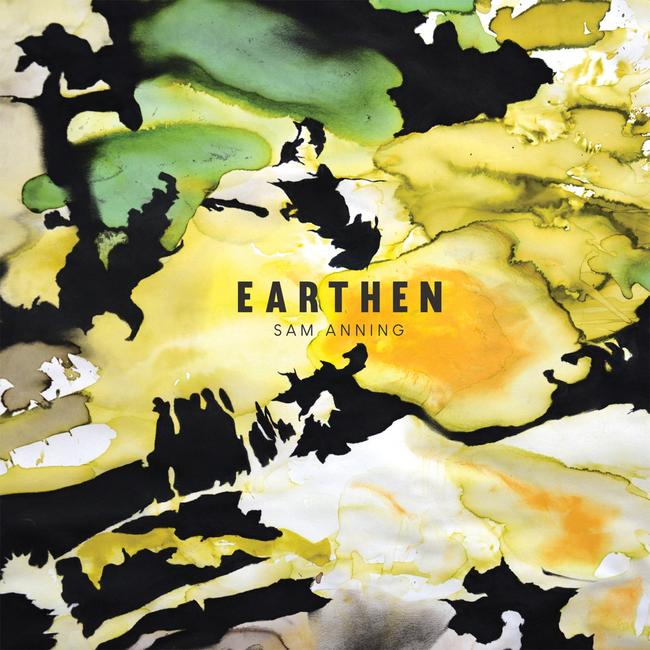
JAZZ
Earthen
Sam Anning
Earshift Music
The inspiration for this album is important, as it deeply affects how one hears the music. Sam Anning played bass in Uncle Archie Roach’s bands for the last three years of Roach’s life. Moreover, Anning and guitarist Steve Magnusson attended Warrnambool Base Hospital and played softly while the award-winning songwriter and musician, then in intensive care, greeted and farewelled family shortly before his death in July 2022. Uncle Archie pointed at the instruments being played and said “This is earthenware. They are made from the earth, music comes from the earth and these instruments carry it, and it goes back to the earth”. An all-star septet performs nine compositions inspired by one of Australia’s most respected Aboriginal elders: Anning himself, Mat Jodrell (trumpet), Carl Mackey (alto saxophone), Andrea Keller (piano, wurlitzer), Julien Wilson (tenor saxophone, electronics), Theo Carbo (electric & acoustic guitars), and Kyrie Anderson (drums). Most tracks have an elegiac quality which pervades this very moving album. I believe Anning’s music authentically reflects the majesty of Uncle Archie’s legacy.
Eric Myers
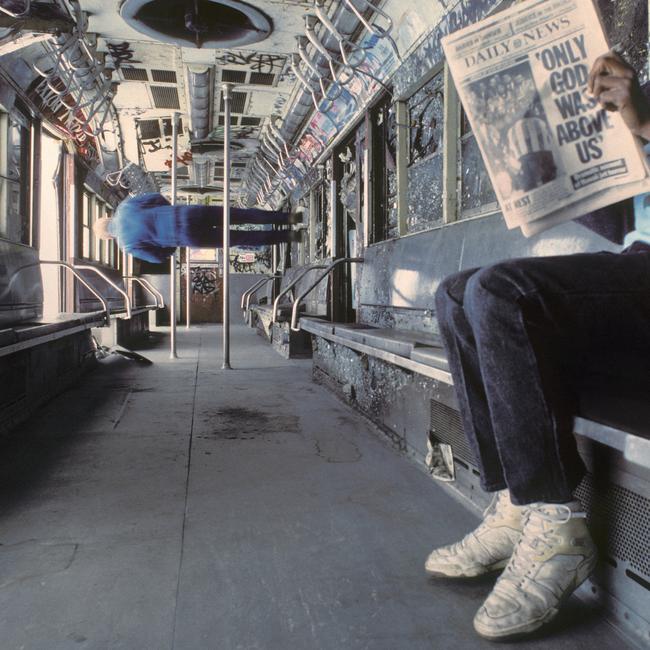
POP
Only God Was Above Us
Vampire Weekend
Sony
Vampire Weekend’s fifth album is described by its record label as being “haunted by 20th century New York City”, and there’s certainly a sense of the trio transmitting through accumulated rubble. The production is often swathed in distortion and discord, with the band’s brightly jumbled guitar motifs and stuttered drums only intermittently at full bloom. Singer/guitarist Ezra Koenig dwells at length on the album’s themes, musing about “sifting through centuries for moments of your own” amid the caved-in Cat Stevens vibes of Capricorn. Similarly, he sings, “I know what lies beneath Manhattan / I know who’s buried in Grant’s tomb” on the cleaner Pravda. Most fascinating is what all comes through that rumbling, chaotic treatment: Connect chops up frisky classical string and piano flourishes, while The Surfer offers murky echoes of Curtis Mayfield. Mary Boone combines a baggy 1990s-style beat with distant choral elements, and the nearly eight-minute closer Hope lurches like head-nodding hip-hop. Yet despite those brooding and scrambled impulses, there are enough melodic and rhythmic riches here to lighten the long hangover of history.
Doug Wallen
